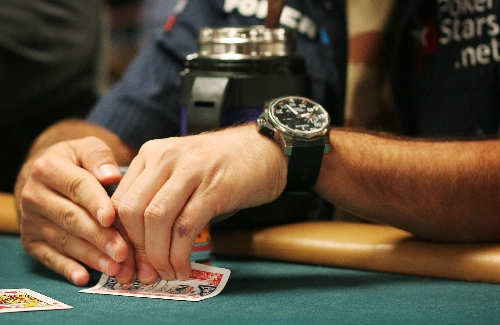Professional gamblers gain with tax ruling

Professional gamblers are now able to deduct business expenses incurred as part of their job.
The catch, however, is determining what constitutes a professional gambler.
A January ruling by the U.S. Tax Court changed a portion of a half-century-old opinion that equated expenses related to a gambling trip with gambling losses — they were deductible only to the extent of their winnings.
The court now believes the expenses to reach a casino or racetrack, and other expenses associated with the activity of gambling, can be written off.
The ruling, experts say, was a victory for gamblers.
"On the whole, gamblers are probably celebrating," said Steve Johnson, a professor at the University of Nevada, Las Vegas Boyd School of Law who has an expertise in tax law. "What the decision says is that gambling is a business trade that is not any different than any other profession. A professional gambler can deduct business expenses."
The ruling by the U.S. Tax Court covered questions sought by Robert Mayo, a professional gambler from California. Mayo wagered $131,760 on horse racing in 2001, collecting $120,463 on his wagers. As part of his tax return that year, Mayo listed expenses of $10,968, which included automobile expenses for travel to the racetracks, and fees for race handicapping information and other research purposes.
The court ruled those expenses were not a wagering loss, but business expenses that contributed to a net operating loss for the year.
"Mayo is an important case, particularly because it’s a full decision of the Tax Court," Roger McEowen, a law professor at Iowa State University’s Center for Agricultural Law and Taxation, wrote in a January newsletter.
"It also is important because it allows professional gamblers to utilize negative operating losses arising from their gambling business," McEowen said. "The rules governing negative operating losses have been made more favorable in recent years. This is exactly what we’ve been pointing out to practitioners at seminars since late 2008."
According to the Bradford Tax Institute’s Tax Reduction Newsletter, the ruling will allow professional gamblers to amend their last three years of returns where business expenses were not claimed because those years had reported gambling losses.
Experts, however, didn’t believe the ruling would lead large numbers of gamblers to begin declaring their trips to Las Vegas as gambling expenses.
Most high-end gamblers are flown to Las Vegas at the expense of the casinos, are given complimentary hotel suites, and afforded free meals, shows and other incentives during their stay.
"While this is a victory for the professional gambler, this doesn’t affect very many gamblers at all," said Judy Patterson, the senior vice president and executive director of American Gaming Association in Washington D.C.
"To qualify, gambling really has to be a full-time activity that is the person’s principal source of livelihood," Patterson said. "It’s a pretty high standard that few will be able to meet."
Tax law experts said the IRS would view professional gambling not as a hobby, but as a full-time profession with participation over a several-year period showing both profits and losses.
The IRS allows a professional gambler to declare winnings and losses on a Schedule C, deducting losses that are larger than winnings.
A spokesman for the Internal Revenue Service said the agency doesn’t comment on specific cases. The IRS website has different rules for professional gamblers than for nonprofessional gamblers.
"Although the law does not define a gambling trade or business, the IRS looks to all the facts and circumstances to make a determination on a case-by-case basis," said IRS spokesman Raphael Tulino.
Johnson said there will most likely be limitations as to what a professional gambler can deduct as travel expenses. For example, the cost of an airline ticket might be deemed as reasonable, but a professional gambler most likely wouldn’t be able to write off the cost for buying an airplane.
All 16 judges on the Tax Court took part in the ruling. Johnson believes other cases, similar to the facts in the Mayo decision, will be filed at some point, which could alter or clarify the ruling.
"We know taxpayers are going to push the envelope on gambling losses and gambling expenses," Johnson said. "There is a going to be further battleground in these cases."
Contact reporter Howard Stutz at hstutz@reviewjournal.com or 702-477-3871.












